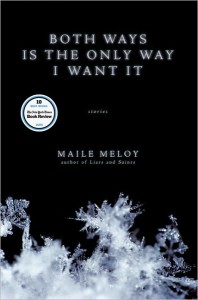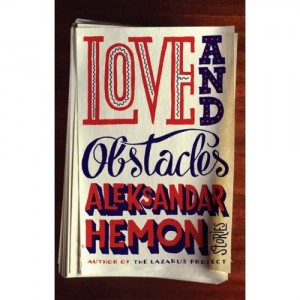Both Ways Is the Only Way I Want It, by Maile Meloy
by Celeste Ng
In Malie Meloy’s most recent collection, Both Ways is the Only Way I Want It, there are no clear lines, no obvious right answers. Meloy’s characters are caught between two choices that are both right—or both wrong—and that’s what makes their decisions so difficult, and makes these stories so compelling. In reading them, you feel, as the author puts it, “both the threat of disorder and the steady, thrumming promise of having everything [you] wanted, all at once.”
























